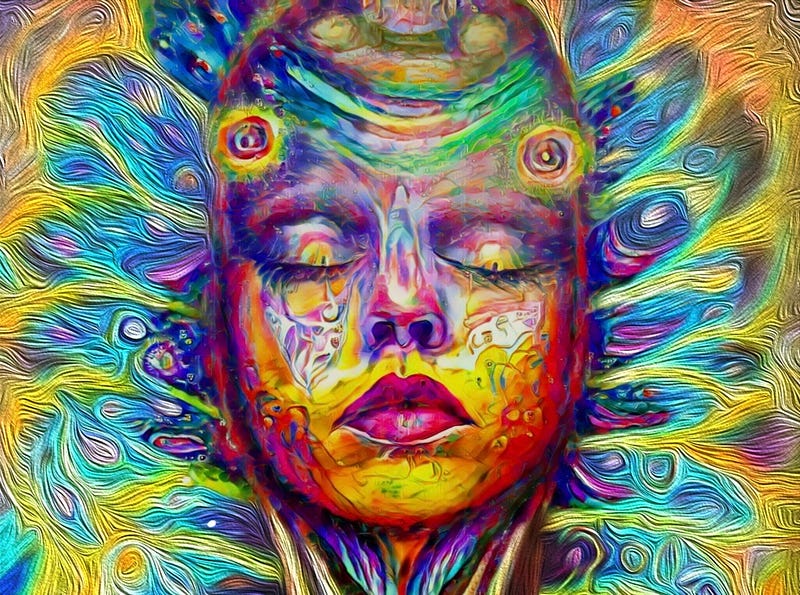Unlocking the Mysteries of Dreams: Insights and Interpretations
Written on
Chapter 1: Understanding Dreams
During one of the most challenging periods in my life — a tumultuous divorce — I found myself plagued by the same vivid nightmare.
In this recurring dream, I wander through my home and discover a peculiar, unfamiliar door. As I push it open, a blinding white light and a fierce gust of wind engulf me. I attempt to flee, but — as is common in nightmares — I become paralyzed. Suddenly, I'm jolted awake, heart racing and covered in sweat. I find myself grappling with the same questions that had troubled me after countless previous dreams: What does this mean? Why does it keep happening?
Neurosurgeon and neuroscientist Rahul Jandial, author of This is Why You Dream: What Your Sleeping Brain Reveals About Your Waking Life, emphasizes the importance of dreams. He states, “Neuroscientists and psychologists increasingly believe there is much we can learn from our dreams. Studies have shown that interpreting our dreams can indeed inform our waking lives, though perhaps not in the ways we anticipate.”

Section 1.1: A Historical Perspective
Throughout the ages, people have sought to decipher their dreams, interpreting them as omens or messages from a higher power. From ancient Egyptians, who employed trained dream interpreters to assist in significant decisions, to Greeks and Romans who believed dreams were messages from the deceased, the fascination with dreams is timeless.
A recent study by the Pew Research Center revealed that nearly half of Americans believe they have encountered deceased relatives in their dreams. This deep-seated belief is echoed in various studies, which indicate that many individuals perceive their dreams as possessing hidden truths. “While most people recognize that dreams likely don't predict the future,” lead researcher Carey K. Morewedge notes, “they still find meaning in their dreams, regardless of whether the content is mundane or bizarre.”
Subsection 1.1.1: The Freudian Lens
Sigmund Freud, the pioneer of psychoanalysis, viewed dreams as manifestations of suppressed desires. He proposed that the surreal landscapes of our dreams are filled with disguised symbols waiting to be interpreted. This perspective gave rise to an industry of self-help psychology, particularly dream dictionaries that promise to reveal hidden meanings.
The concept of interpreting dreams is ancient. In fact, Jandial mentions a dream dictionary created in Egypt over 3,000 years ago.
Section 1.2: Seeking Meaning in Modern Times
As I navigated the emotional turmoil of my divorce, I found myself in a bookstore surrounded by shelves lined with dream interpretation guides. Many covers featured whimsical designs of angels and ethereal landscapes.
One book suggested that discovering a new room symbolizes personal growth, while another linked it to feelings of inadequacy. A third simply indicated I had a poor sense of direction. Frustrated, I realized that while I sought concrete insights, I was met with vague interpretations akin to a daily horoscope.
Chapter 2: The Science of Dreaming
What do your dreams mean - and how do you control them? In this video, experts explore the psychological significance of dreams and how they can be harnessed for personal growth.
The threat simulation theory posits that dreams prepare us for potential dangers by running simulations. A 2014 study in Conscious Cognition found that students who recalled stressful dreams before an exam performed better than those who didn't. This suggests that our dreams may serve as a form of nocturnal therapy, helping us process anxiety.
Another perspective is that dreaming aids in problem-solving. A 2010 study in Current Biology demonstrated that participants who napped and dreamed about a maze showed significantly improved performance afterward compared to those who remained awake.
Do dreams have deeper meanings? This video delves into various scientific theories about dreams and their implications for our waking lives.
Section 2.1: The Creative Aspect of Dreams
Dreams can also enhance creativity by allowing unfettered thought. A 2015 study in Human Brain Mapping revealed that poets, while dreaming, could produce highly symbolic poetry by temporarily suppressing logical reasoning.
Jandial notes that dreams have inspired many significant inventions and works of art, including the sewing machine and Paul McCartney's iconic song "Yesterday."
Section 2.2: The Activation-Synthesis Theory
The activation-synthesis theory, developed by J. Allan Hobson at Harvard, posits that dreams are the brain’s method for organizing and storing information. As we sleep, neurotransmitters create a narrative from the day’s experiences, resulting in dreams that are often chaotic yet meaningful.
As I reflect on the past 25 years since my divorce, I recognize how much my life has changed. Now happily remarried and enjoying retirement, I find that my old dream has resurfaced. While the content remains similar — an odd door, brilliant light, and gust of wind — my feelings have shifted entirely.
In this dream, instead of fear, I feel curiosity and agility. I can now clearly see the room behind the door: a beautiful library, bright and inviting, filled with sunlight and cozy chairs. No longer needing a dream dictionary, I understand this room symbolizes my new life after work.
Jandial’s insights resonate with me: “Your dreams reflect your current life stage and evolve, much like the seasons.” With a touch of introspection, I find that my dream provides valuable insights that enhance my overall well-being.
I now appreciate the resilience I’ve shown through challenging times in both love and work. Today, I’m pleased to say that I am truly living the dream.
Thanks for reading! Your support makes my writing possible. You can sign up for updates when I publish on Medium or join Medium to directly support my work and access all stories.
